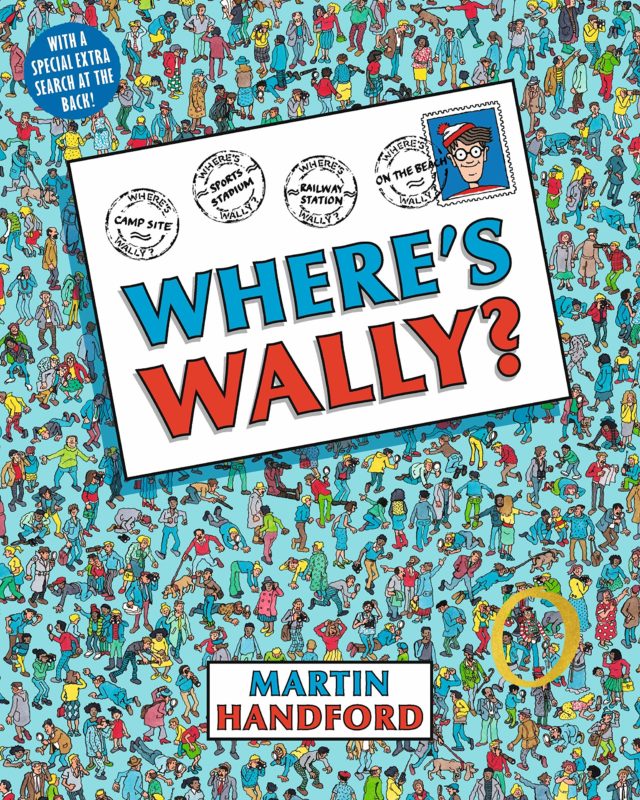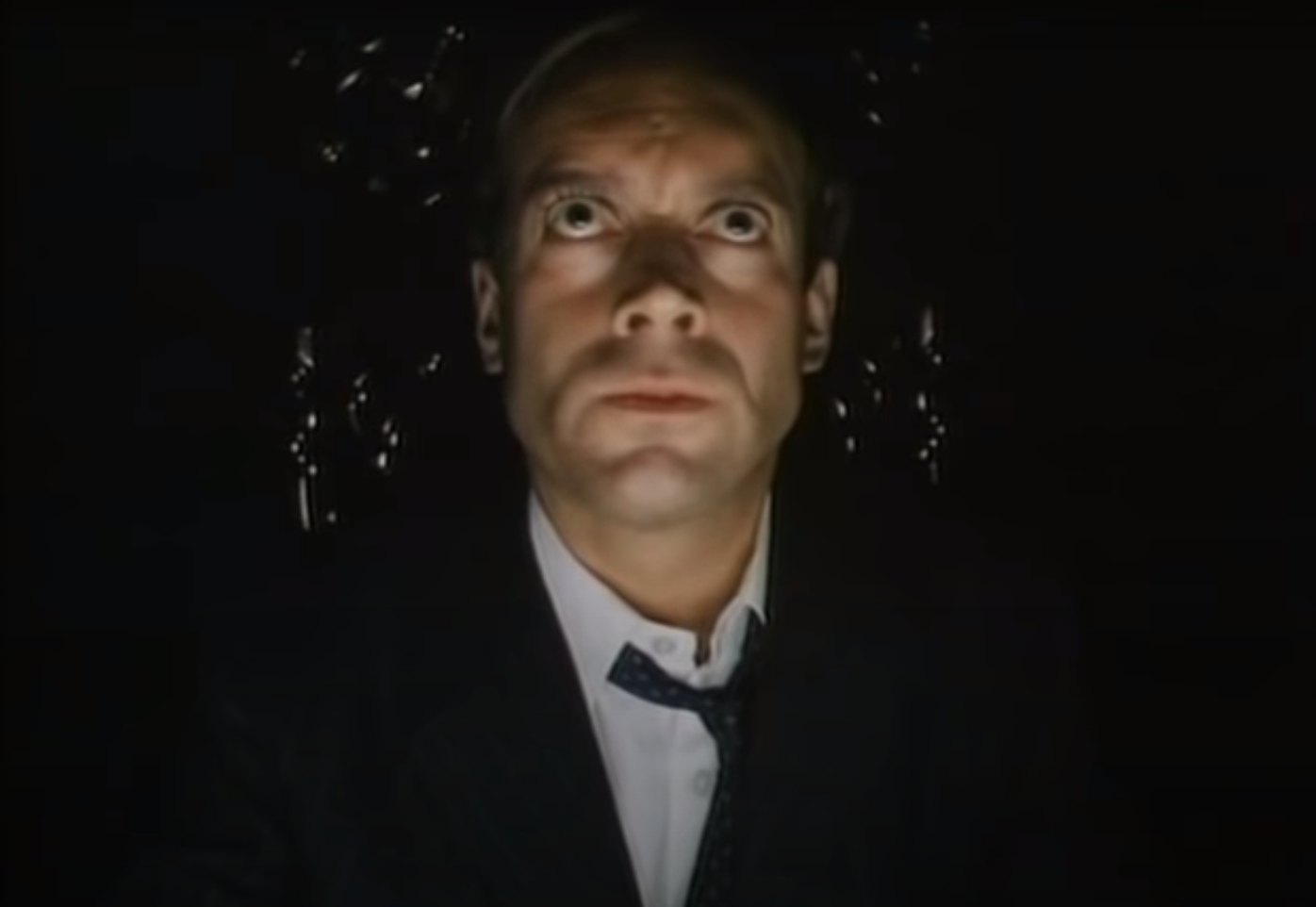
Doom didn’t receive a proper retail release for a long time. For years, the correct way to get the game was to log on to ftp.uwp.edu and stay up all night downloading it on your 14.4k modem. This wedded the game to early internet culture: the idea of buying Doom in a store seems strange, like viewing a Pre-Raphaelite work of art on an iPhone.
Regardless, Doom mission packs of varying quality/legality appeared on shelves and many included a DOOM.EXE, thus making them a handy way to get the game if you weren’t on Al Gore’s information superhighway.
1997’s Depths of Doom was one of the last. It contains the original games (Doom + Thy Flesh Consumed + Doom II), plus DWANGO, plus Windows executables (playing at 640×480 was cool back in the day, although obsolete in an era of GZDoom). It also has Master Levels, a 21-level set that are generally superior to the originals in quality (aside from the shit joke level with fifty Cyberdemons shooting at you).
The second disc contains Maximum Doom, which was ~1800 fan-made levels downloaded from the internet. Shovelware. There’s no quality control: some levels crash, most suck, some are actually for different games like Heretic and Hexen, and some are graphical and audio mods containing content from the Simpsons or Monty Python, making the entire release is technically illegal.
I enjoy playing Doom wads. They’re historical documents from the pre-Google (<1995) internet, or the at least the part of it frequented by teenage boys. You see their fascinations spread out like a mandala: Arnold Schwarzenegger, Beavis and Butthead, porn stars who are now old enough to be grandmothers. If there’s a soundtrack, it’s probably a midi of Metallica or Pantera.
Some of them invite you into their lives in small but touching ways: designing levels based on their house or their mall or their school (that one didn’t age well). I’m fascinated by how many of these uploaders include text files telling you how to contact them…including their real names, and phone numbers, and street addresses.
Was the internet less nasty in 1993? Or were kids stupider?

Wally/Waldo is a man in a red striped jumper and bobble hat, hiding somewhere in a complicated picture. Why does he wear such a distinctive outfit? Why not wear black clothes and blacken his face and hide in a coal mine?* Because Wally’s not actually hiding. You’re supposed to find him.
The appeal of games – from Martin Gardner puzzle books to Super Mario Bros – is this: they want you to succeed. Games, by definition, are designed so you can win. Reality isn’t like that, and people addicted to games are often addicted for good reason.
But Where’s Wally puzzles are fascinating even when you’re not an addict. They carry a magical enchantment – one glance sucks you in, and then you’ve spent five minutes looking for a ridiculous bobble hat. Or ten minutes. Or however long it takes. I’ve heard disturbing stories of people posting edited puzzles online with Wally removed. And you thought you didn’t support the death penalty.
I wonder how many children were subconsciously influenced to become programmers by these books. Finding Wally takes skill as well as luck: it’s fundamentally a search problem, and there are several ways to find Wally.
The most obvious method is a blind fishing algorithm; let your gaze wander around on the page until you spot the striped jumper by chance. This is a poor method: it’s hard to remember the places you’ve already looked and you’ll probably check the same place multiple times. Also, the human eye is a biased sampling tool. It’s drawn to busy, high-interest areas, which won’t necessarily contain Wally.
A better method is to cut the page into a 10*10 grid of tiles (either with your eye or a knife), and examine it square by square. You’ll find Wally eventually, but it might take a long time: if you start looking top-left and Wally’s at bottom-right, you’ll have to check every single tile.
Is there a faster way? Yes. Remember that not every tile is equally likely to contain Wally. Some contain empty water or empty sky. More fundamentally, you’re not looking for Wally; he doesn’t exist, you’re looking for an illustration on a page containing red ink. Any square without red will ipso facto not contain Wally, so throw all of them away.
You are now left with a small number of tiles that maybe contain Wally. Speed up your search still further by remembering that Where’s Wally is a book, and the author rarely puts Wally on the edge of a page (because you’ll look there when you turn the page), or in the top left corner (because there’s a text box there describing the environment). Arrange your tiles so that the unlikely ones are on the bottom. Using this method, you’ll have tiles sorted high-probability to low-probability, and you’ll probably find Wally after picking up just a few. That is, if you don’t suffer a fatal heart attack from EXCITEMENT.
It’s possible to solve a Where’s Wally puzzle quickly, just as it’s possible to eat an ice cream in ten seconds, but part of the appeal is taking your time and enjoying the art. Where’s Wally pictures are packed with more detail than a Persian carpet, containing so many people that they don’t even look like people: they’re objects, like a strew of spilled jellybeans. Author Martin Handford owes a debt to horror vacui, an art approach that relies on filling everything with something.
Despite occasional verisimilitude (a tiny exposed breast on page 2 has earned Where’s Wally repeated bans from bookshelves), the overall effect is to distance you from life. Everything becomes a sea of human-shaped noise, as dead as a TV screen tuned to static…but you have to find a man in the static.
Again, there’s a weird vocational training aspect to Where’s Wally, turning kids into private eyes. Can you find a certain person who’s identical to the rest…except for a bobble hat? How much noise can you sift through to find a signal? There could be a Where’s Wally to programmer pipeline. There could also be a Where’s Wally to NSA analyst pipeline. Edward Snowden, Chelsea Manning, and Julian Assange had the misfortune of becoming Wally in real life.
I remember an animated Where’s Wally cartoon that missed the point: they turned Wally into a heroic protagonist who goes on adventures, which is necessary for dramatic purposes but destructive to the spirit of the books. He’s supposed to be a face in a crowd. He could be any of us. He’s not special – or is he? How would we even tell? Are we Wally to someone else? If so, how easy should we make it for them to find us?
We live in a Where’s Wally puzzle as wide as the Earth. We’re born knowing nobody except a few family members. From the remaining 99.99999% of the human race, we’re supposed to locate friends, associates, and romantic partners. Some people find Wally with instinctive ease. Others struggle, and rely on sorting algorithms such as dating sites and social media. And still others don’t try at all, because failure is terrifying.
Climb up to a high place in a busy city, and look down at the thousands of people flowing in pulses, as if a great beating heart is driving them. Think of how little you know about them. Some of them rescue pets from burning buildings. Some of them rape and strangle children. The world is a huge inscrutable horror vacui of saints and sinners. Do these people want to help you? Harm you? You don’t know. You’re forced to guess based on tiny signs, small clues. Instead of a striped jumper it might be a word, a gesture, or an insincere smile that doesn’t reach the eyes. Perhaps this is why Where’s Wally is eerily compulsive: we hear the echo of our lives inside it.
Where’s Wally is training.
For something.
(*obviously, this is blackface, Martin Handford would be #cancelled and branded an international hate criminal, and Wally himself would become a symbol of racism, starring in new books such as Where’s Wally at the Nuremberg Rally, Where’s Wally at Auschwitz-Birkenau II, and Where’s Wally at the 2021 Academy Awards.)

Max Headroom is a “computer animated” TV host from the 1985 UK music video series The Max Headroom Show, the 1985 telemovie Max Headroom: 20 Minutes into the Future, and the 1987 science fiction series Max Headroom.
Air quotes because he’s not computer animated, he’s actor Matt Frewer with latex and foam stuck to his face. Computer animation cost tens of thousands of dollars per minute in 1985, and Victorian chimney-sweeper logic kicked in: “screw cutting edge technology, let’s send an eight-year-old boy up the flue.” In 2020, computers steal jobs from humans. In Max Headroom‘s time, we stole jobs from them.
Max’s character is jarring and wrong, st-st-stuttering like a stroke victim as he reels of Dangerfield-esque one-liners. The idea is that he’s a human consciousness digitized imperfectly – a half-a-human. You can’t be at ease while watching him, it’s like eating dinner off a cracked plate. The fact that he was broken ironically made him complete: nobody would remember his unfunny jokes if they’d been delivered in a normal voice. He’s a vivid example of glitching and ugliness used for artistic effect (note the similar stuttering used in Paul Hardcastle’s “19”).
Max is a one-idea character, but the idea proved highly successful. He’s widely recognized (and parodied). There’s a Hello Kitty aspect to Max: everyone recognizes the character, but few can tell you where he’s from, or even where they first saw him. For some, it was the New Coke commercial; for others, Max Headroom just exists, a creation without a creator, floating freely in conceptual ether.
The character, however, emerged out of a very specific set of circumstances.
In 1981, video killed the radio star, and stations such as MTV needed hosts to talk between records (where “talk” means “sell products”). Unlike radio hosts (who were heard but not seen), video jockeys needed to look attractive, or at least interesting in some way. They couldn’t, for example, be a man “shaped like whatever container you pour him into” (in Patrice O’Neal’s immortal roast of chubby radio host Jim Norton).
Most stations wanted their hosts to be hip, the UK’s Channel 4 took a different path and made their host a weird, uncool goober, whose lame one-liners are further mangled by a layer of digital distortion.
It was a great idea: Max Headroom won’t ever become lame: he’s already maximally lame. He won’t lose dignity when he plugs a sponsored product: he had no dignity to begin with. Rock stars will want to talk to him: he’ll made even the most incompetent cokehead seem like a scholar.
But Max Headroom didn’t become famous from the music video show.
It soon occurred to Channel 4 that this character might work in a sci-fi drama, and the result is a dated but interesting cyberpunk film that owes a lot to Blade Runner and Brazil, although made for far less money.
The film is set in near-future England, which could be described as “Thatcher, but more”. London is as black and filthy as the inside of a tar-saturated lung. Thugs lurk in the shadows, ready to kidnap you and sell your organs to body banks. Industry is ferocious, a terrifying machine running on a fuel of human lives. There are televisions everywhere, blaring idiocy.
The plot involves entertainment conglomerate Channel 23, who have invented a new form of TV ad called the “Blipvert”. Traditional 30-second ads annoy viewers and cause them to change the channel, but Blipverts allow ads to be compressed into a few seconds of high-intensity audiovisual stimulation. Ratings are through the roof. However, some people experience a side effect: they explode.
There’s some funny and effective satire where we see Channel 23 execs trying to defend Blipverts. No causal link has been proven! Surely some percentage of the population can be expected to randomly explode, right? Also, if you explode after watching an ad, isn’t it your fault in the end? We’re probably supposed to think of tobacco companies: modern viewers will think of the oil industry.
Regardless, star reporter Edison Carter (who works for Channel 23 himself) gets “too close to the truth” and suffers a tragic motorcycle “accident”. However, he’s supposed to appear on air later that day, and a bungled attempt to digitize Carter’s brain results in an odd lifeform that immediately utters the words “Max Headroom”, because that was the final thing Carter saw before his bike crashed.
Writer George Stone says British firms spent millions of pounds relabeling the “Max Headroom” signs in public garages to “Maximum Height”, due to association with the character. There’s a slight chance that Max Headroom actually cost Britain more money than it made.
The movie did not really have a budget. Its portrayal of futuristic London as an industrial wasteland is more a concession to lack of money than anything (in a stroke of luck, they were able to shoot in Beckton Gasworks, where Stanley Kubrick filmed certain scenes in Full Metal Jacket).
Yet it nails the things that are cheap: acting, and tone. A grungy and effective mood soon appears. The story’s confusing and hard to follow, but it’s not boring.
The camera-work has an aggressive, edge-pushing quality that’s as unsettling as Max Headroom himself. For example, consider the alarming way the villainous Channel 23 head Grossman is framed. Sharply underlit, and distorted by bubbled lensing in a way that emphasises actor Nickolas Grace’s exotropia. He looks terrifying, a one-man Panopticon.

Max Headroom actually doesn’t do much in this movie. The same holds true for the American TV series: the episodes explore some science fiction conceit related to capitalism and media (a reality TV show is attracting viewers through subliminal mind control, or something), and Max serves as a framing device for the story. He’s Tel-vira, Maxtress of the Byte. But isn’t that what a VJ is supposed to do? Introduce stuff, and get out of the way?
People like Edison Carter and Theora got to have all the fun, running around and solving crimes. Max is just a talking head, frozen in place, transfixed like a glitching, jittery butterfly upon a technological pin.
He has nothing to do. He just tells his idiotic jokes and becomes more outdated day by day. Matt Frewer was wont to complain about how annoying his makeup and prosthetics were (“like being on the inside of a giant tennis ball”), but the character itself was just as restricted.
Video hosts are passive, powerless ciphers, introducing the action without ever being a part of it. They’re like eunuchs guarding the sultan’s harem – yes, they know all about the deed, but they’ll never do it for themselves. It’s no surprise that the career breeds dissatisfaction, and a search for something more.




